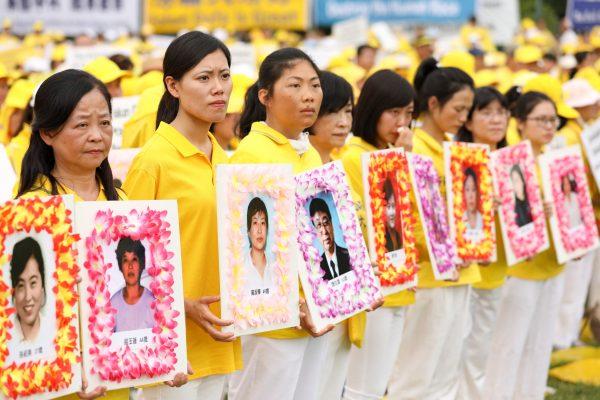The Arizona bill, which aimed to block state funding for Beijing’s state-sponsored forced organ harvesting, was on the verge of success. It passed through both chambers of the Arizona Legislature with the support of health insurers, only to be vetoed on the governor’s desk.
State Rep. Leo Biasiucci, the bill’s lead sponsor, expressed his shock and disappointment at the veto, struggling to find the right words to describe the situation. He emphasized the importance of passing a bill that condemns such heinous crimes.
The veto came as a blow to those advocating for the bill, including Diana Molovinsky of the Phoenix Falun Dafa Association. She described the veto as “very disappointing,” noting that the majority of people in Arizona supported the bill.
Despite the setback, proponents of the bill remain determined to keep pushing for its passage. They expressed frustration that the governor did not communicate her concerns about the bill before vetoing it, and they now have to wait until January 2025 to resubmit the legislation.
The veto of the bill highlighted the ongoing challenges in addressing forced organ harvesting in China, a practice that has victimized prisoners of conscience, including Falun Gong practitioners. The bill’s supporters remain committed to their cause and hope to eventually see legislation passed to combat this egregious human rights violation.
Molovinsky expressed disappointment that Arizonans have missed out on an opportunity to make a more informed decision when it comes to organ transplant surgeries in China. She highlighted the ethical concerns surrounding the source of organs in China, stating that recipients may not know where the organs are coming from and the potential consequences of obtaining them.

Despite the setback, Molovinsky emphasized that the bill has succeeded in raising awareness about forced organ harvesting in Arizona. She noted that legislators now understand the gravity of the issue, recognizing that it is a state-sanctioned practice by the Chinese government.
Biasiucci, who delved into the issue himself, acknowledged the difficulty in accepting the reality of forced organ harvesting. He expressed his determination to continue advocating for the bill and plans to engage with the governor to garner support.
He highlighted the importance of media coverage and public awareness in combating the issue, affirming his commitment to pushing for the bill’s passage. “We have to put an end to it,” he stated. “The more people that talk about it, the better off we are.”





